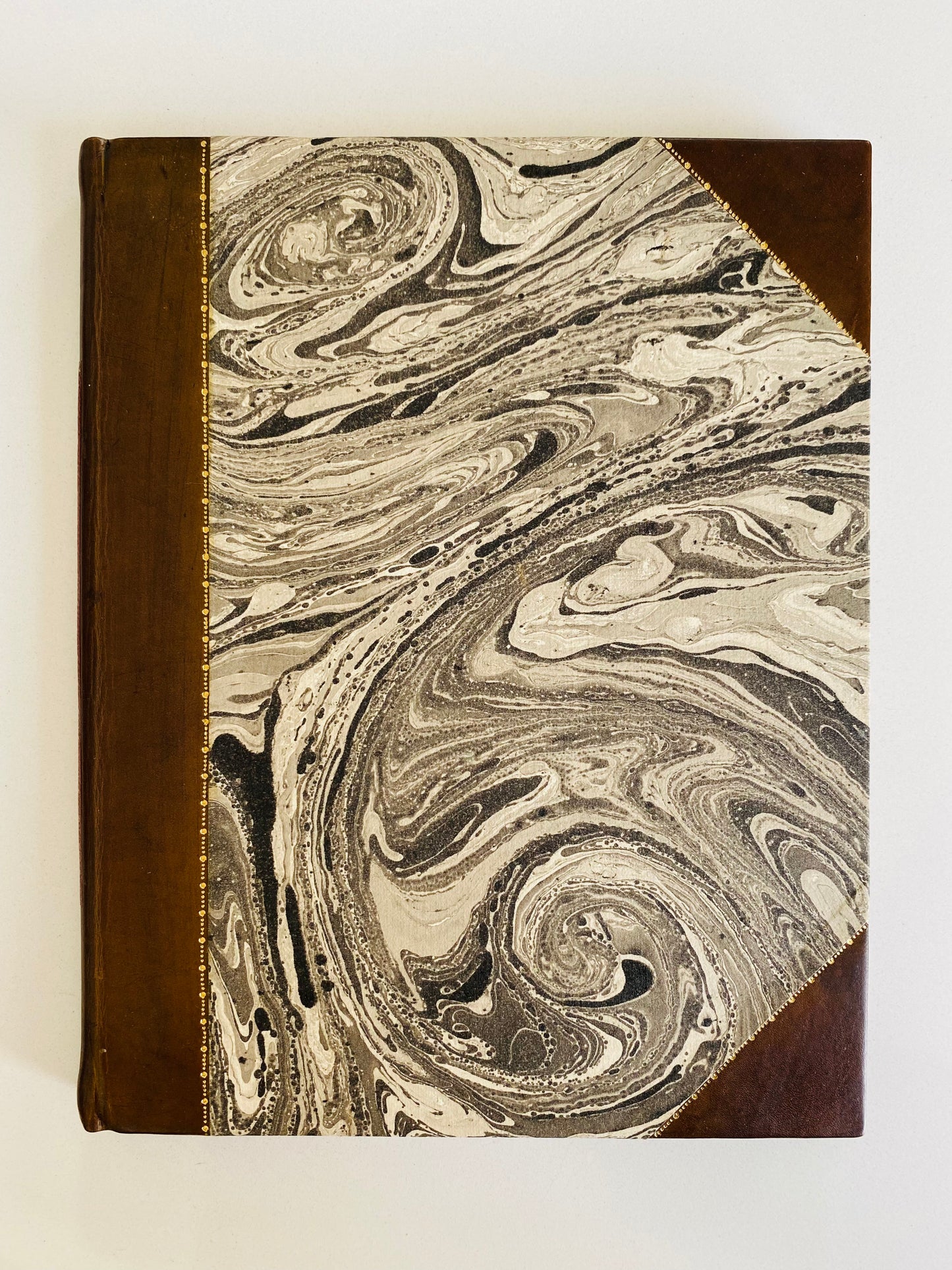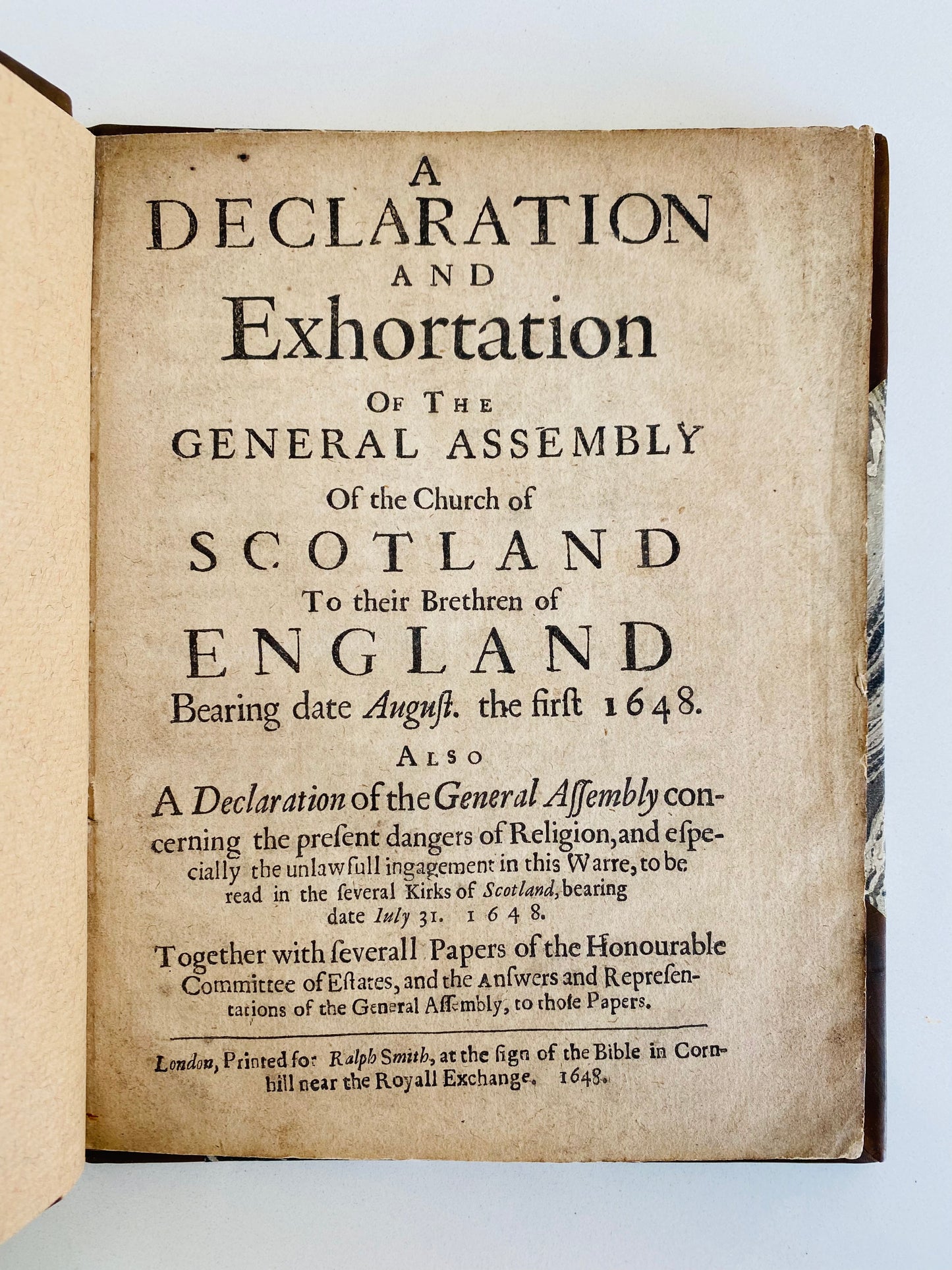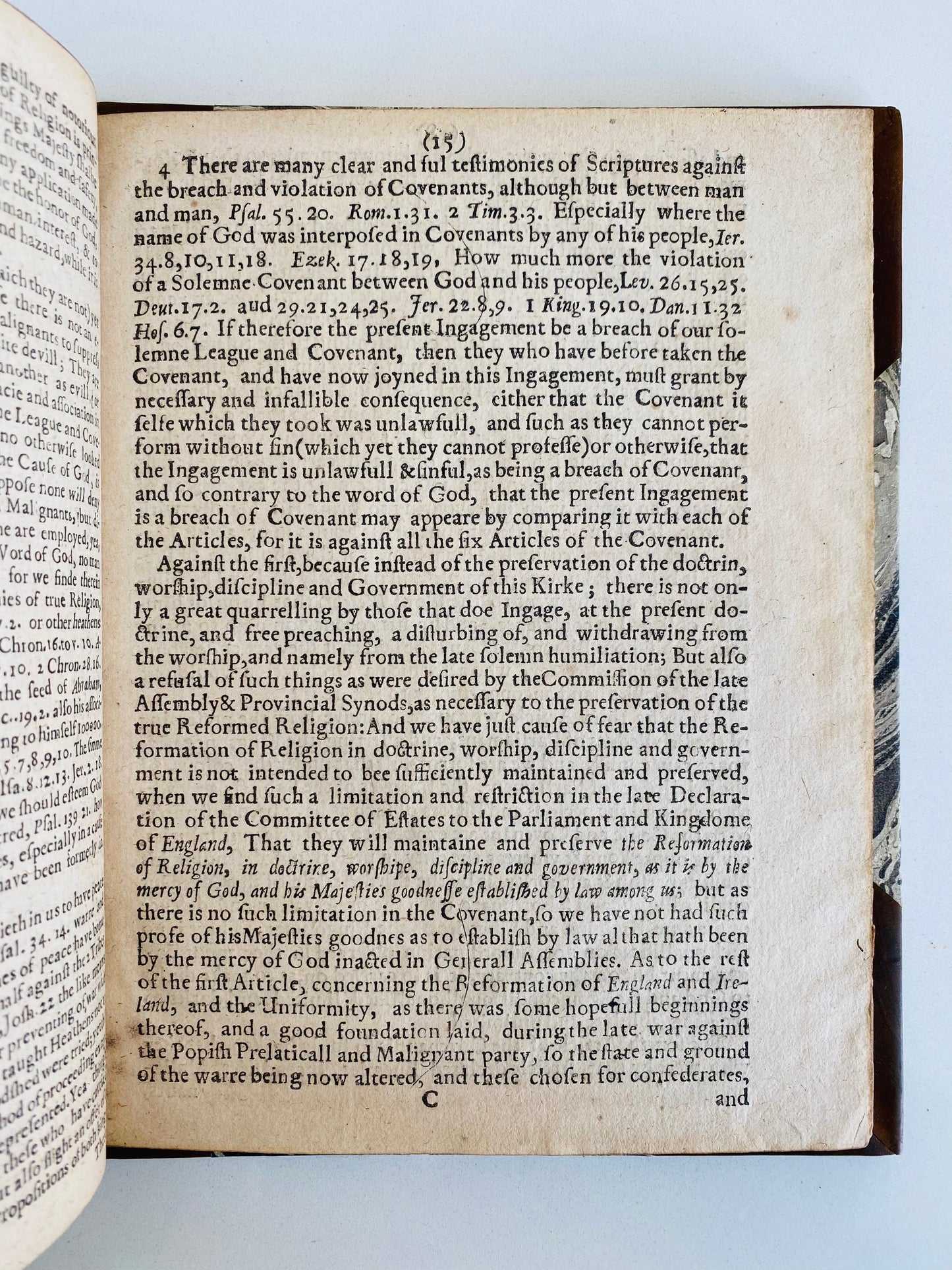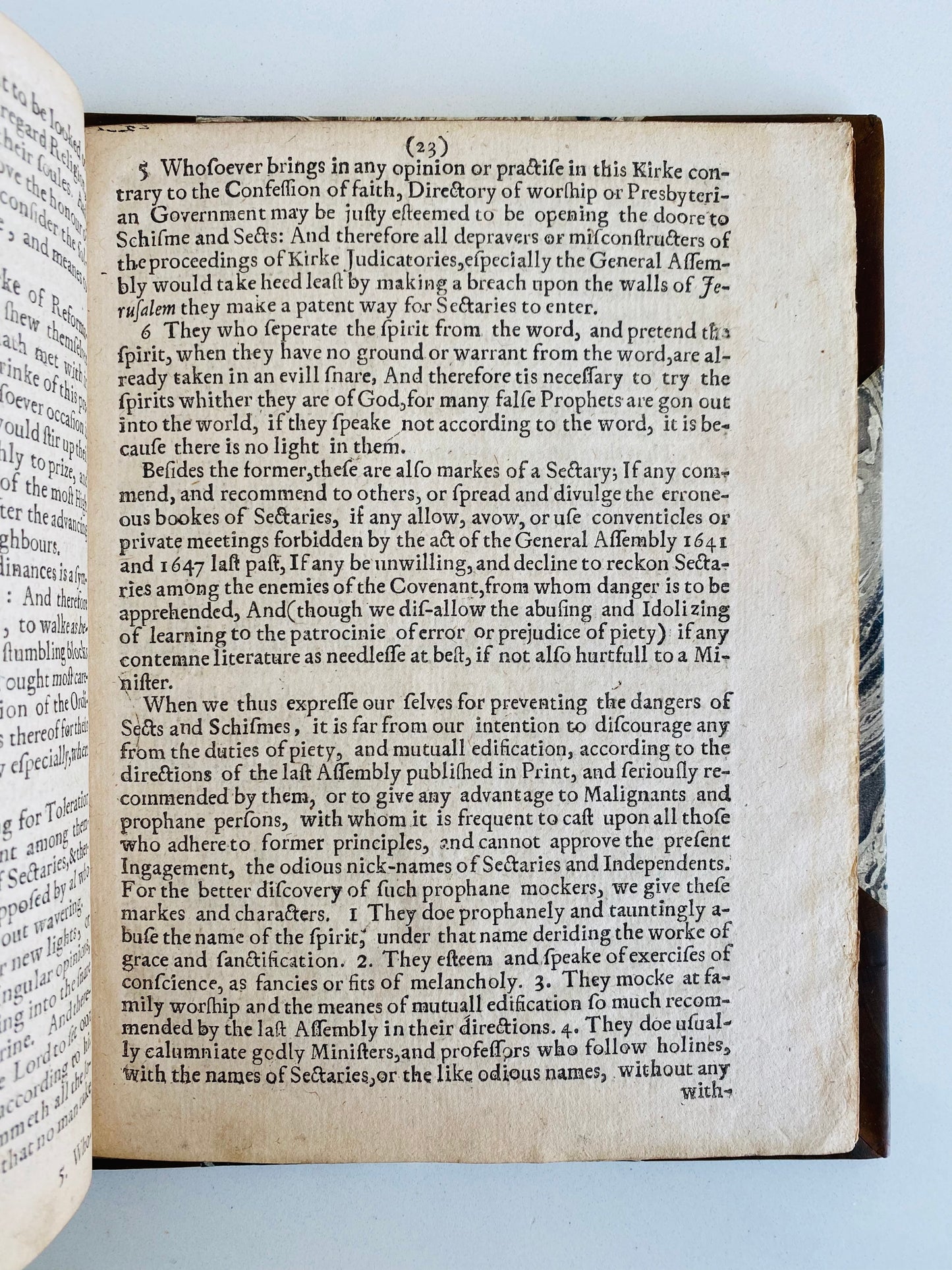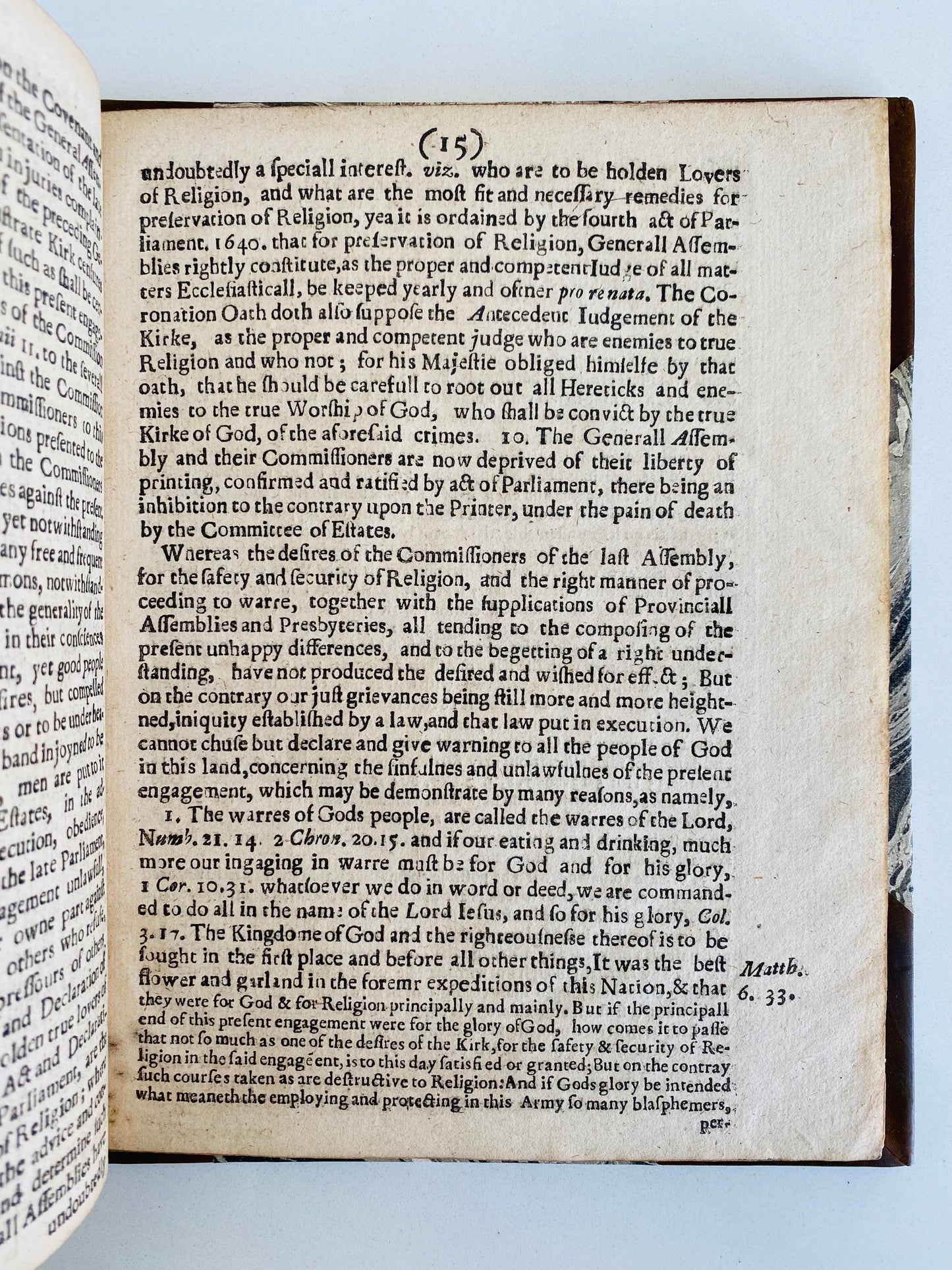Specs Fine Books
1648 SCOTTISH COVENANTERS. Formal Declaration Giving Theological Rational for Protecting God's Covenanted Land of Scotland.
1648 SCOTTISH COVENANTERS. Formal Declaration Giving Theological Rational for Protecting God's Covenanted Land of Scotland.
Couldn't load pickup availability
A very scarce original issue of the theological rationale of Scotland for engaging in war with England. As they had covenanted with God via the Solemn League and Covenant, to establish a new Israel where righteousness dwelt, and whereas the free exercise of their religion was the modality for the fulfillment of that Covenant, as ancient Israel it was their religious duty to take up arms to defend God's covenanted land and people.
Very scarce and extremely tidy copy; none on the market at any cost.
A Declaration and Exhortation of the General Assembly of the Church of Scotland to their Brethren of England Bearing date August the First 1648. Also a Declaration of the General Assembly Concerning the Present Dangers of Religion, and Especially the Unlawful Engagement in this War, to be Read in the Several Kirks of Scotland, Bearing date July 31, 1648. Together with Several Papers of the Honorable Committee of Estates, and the Answers and Representations of the General Assembly, to those Papers. London. Printed for Ralph Smith at the Sign of the Bible in Corn-hill near the Royal Exchange. 1648. 30pp.
"The General Assembly, having considered the Paper of the 24. July delivered to them from the conference, and having compared it with the other Paper of the 17. of July presented from the honourable Committee of Estates whereunto it relates, and with the Declaration lately emitted by the Committee to the Parliament and Kingdom of England, find that it is supposed by their Lordships that we may be satisfied in point of the security of Religion according to the Covenant, notwithstanding of the present engagement in war; The Assembly to therefore in answer to said paper declare,
That we see no possibility of securing Religion; as long as this unlawful engagement is carried on, Religion being thereby greatly endangered. . . . it was represented to the High and Honourable Cout of Parliament, that for securing of Religion, it was necessary that the popish, prelatical, and malignant party be declared enemies to the cause upon the one hand, as well as sectaries upon the other, and that all associations, either in forces or counselrs with the former as well as the latter be avoided . . . and that there be no engagement without a solemn oath, wherein the Kirk ought to have the same interest they had in the solemn League and Covenant."
"The engagement is carried on by such means and ways as tend to the destroying of religion, by ensnaring and forcing the consciences of the people of God with unlawful bands and oaths, and oppressing the persons and estates of such as have been the most active and zealous for religion and the Covenant, all which is strengthened and authored by acts of Parliament, appointing that all that do not obey, or persuade others not to obey the Resolutions of Parliament and Committee or who shall not subscribe the Act and Declaration shall be holden as enemies to the cause and to religion and have their persons secured and their estates intrometted with."
The remainder are impassioned pleas to the Scottish Kirk to remain true to the Solemn League and Covenant and for the English Parliament to see themselves as oppressors of God's people, whose spiritual brothers they profess to be, by the imposition of a State religion on the people of Scotland.
Very good, crisp example; scarce in any condition, and here beautifully preserved and presented.
Share
